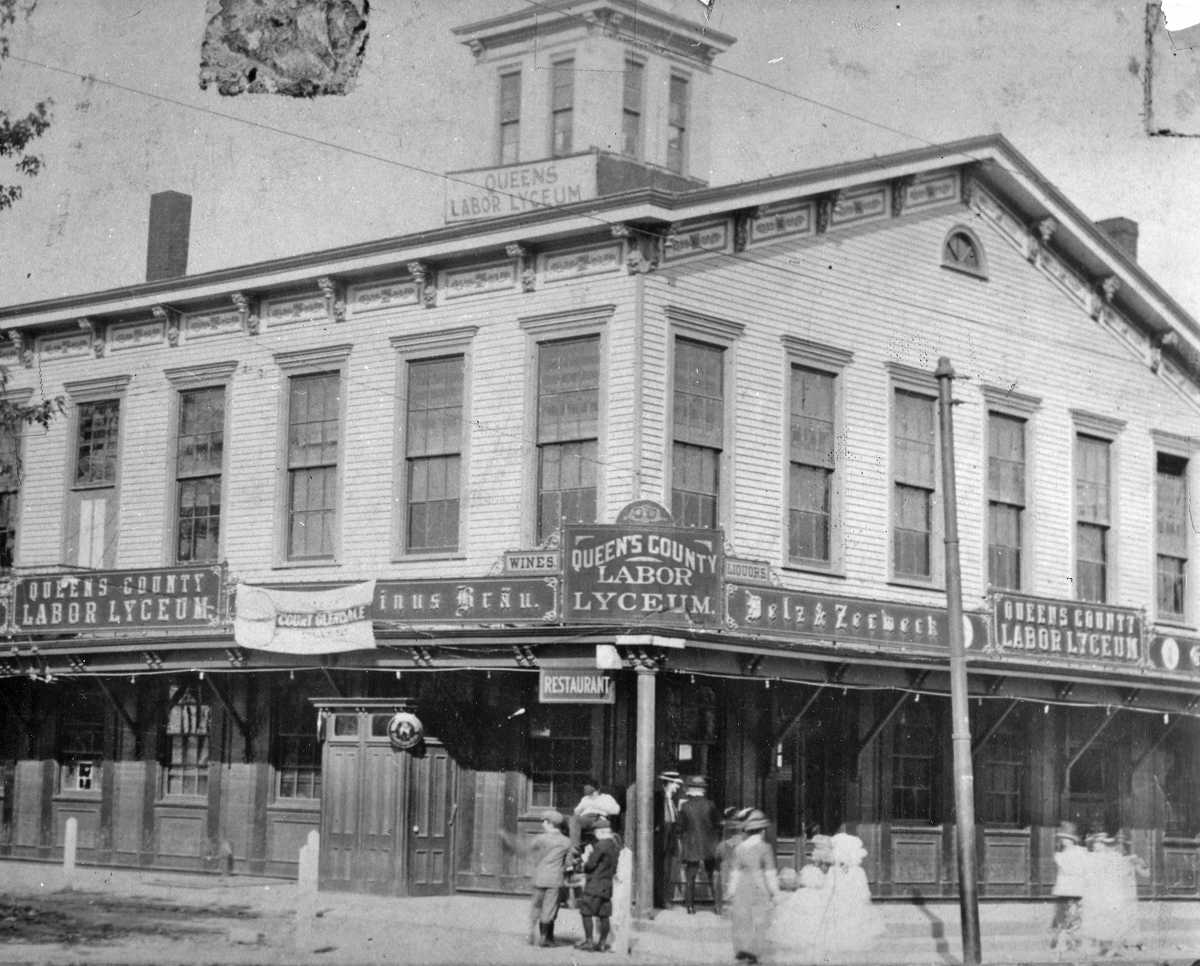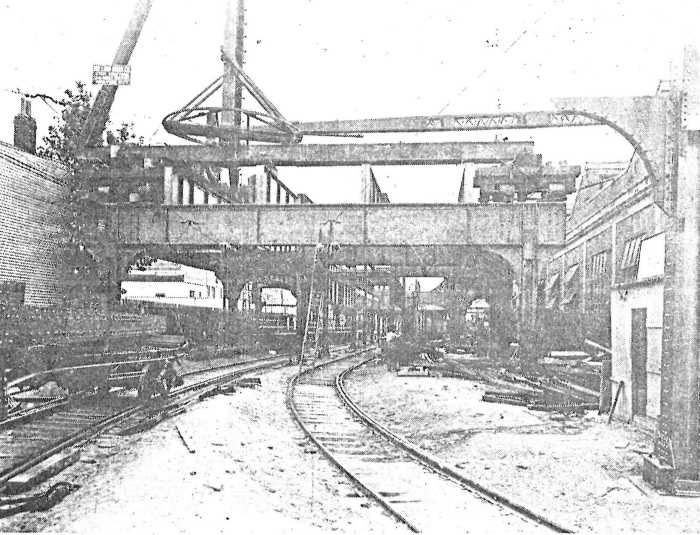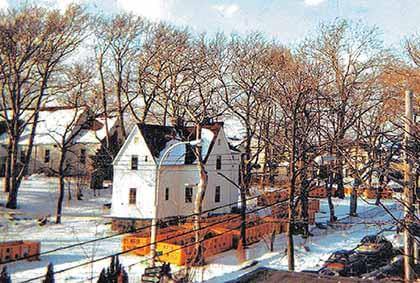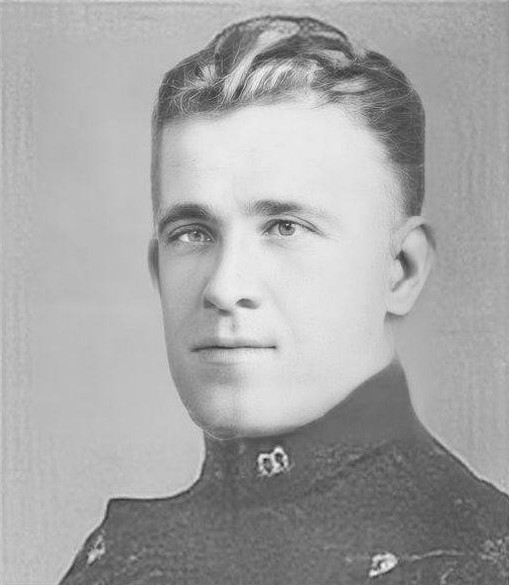We’re turning the clock way back this week to the year 1913, to a site in Ridgewood that once was a popular hotel and beer hall.
The Queens County Labor Lyceum stood for many years at the corner of Cypress Avenue and Cornelia Street. In prior years, it was known as Kreuscher’s Hotel. The building had been in use as a hotel since its construction some 50 years earlier.
On Feb. 24, 1860, Andrew Beck purchased for $2,000 a wooded plot of land slightly over a half-acre in size where the hotel was built. The land formerly belonged to the Wyckoff Family, which at one point owned hundreds of acres that would later be transformed into residential communities.
Beck cleared a portion of the site and built a saloon and hotel, which opened later that same year. It was a wooden, two-story structure with the saloon and dining room on the main floor and the hotel above. The dining room seated 500; a stable for up to 40 horses was provided in a building on nearby Cypress Hills Plank Road (the original name of Cypress Avenue).
To light the premises, 100 kerosene lamps were used, and in colder weather, 14 coal stoves were used for heating.
The location turned out to be excellent for a hotel. Cypress Hills Cemetery, which opened in 1849, generated traffic from Brooklyn along Myrtle Avenue and Cypress Hills Plank Road. Also, the Union Course Race Track was located not too far away in what would become Woodhaven.
Additional traffic came from farmers from eastern Queens and Long Island who used roadways such as Myrtle Avenue and the Brooklyn-Jamaica Plank Road (present-day Jamaica Avenue) while bringing goods by horse and buggy to and from Manhattan.
These farmers used Beck’s Hotel as a much-needed rest stop.
On July 1, 1871, Andrew Beck sold the hotel to George Frederick Stroebel for $21,000. The name of the establishment changed to Stroebel’s Hotel. Strobel and his family would take up residence at the hotel while continuing to let rooms there to the public.
Stroebel was active in politics and his hotel was used for several of the county political club meetings. Also, the picnic grounds in the rear of the hotel were used by various societies.
After Strobel’s death in 1878, his daughter, Rosy, married John Kreuscher, who took over management of the hotel. A few years later, to settle the Stroebel family estate, Kreuscher bought the hotel and its property for more than $15,000 and renamed the business Kreuscher’s Hotel.
John Kreuscher died in about 1907, and Rosy operated the hotel with the help of her son, Frederick. Then, the hotel gained a new standing in the community.
In the spring of 1909, Father Wagner, the pastor of St. Matthias Church, arranged with the Kreuscher family to have Mass celebrated in the hotel until the new church on Catalpa Avenue was ready later in the year. Previously, Mass had been held at the Ridgewood Pavilion on Cypress Avenue between George and Summerfield Streets.
The arrangement between St. Matthias and Kreuscher’s Hotel continued until July 18, 1909, when the first Mass was celebrated at the new church.
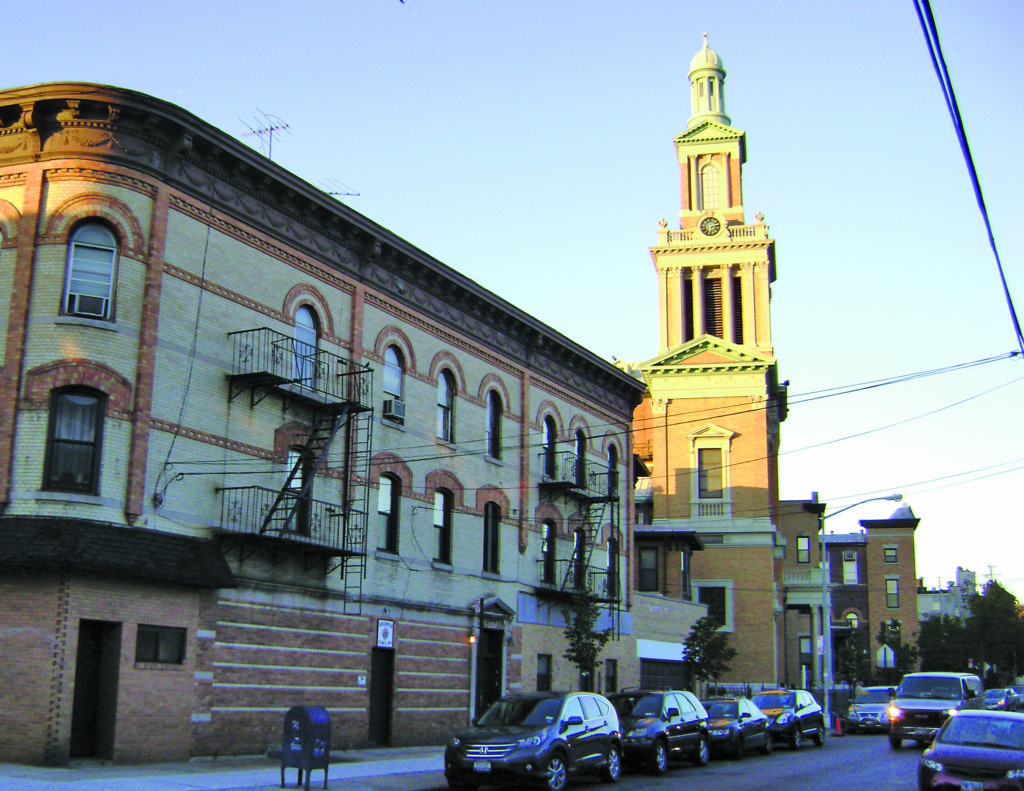
Then in 1911, the hotel’s stable was transformed into one of the first motion picture theaters in the area.
Finally, on March 22, 1913, the Kreuscher family exited the hotel business. Rosy Kreuscher sold the hotel to Martin Kramer and Martin Seubert, who then resold it to the Queens Labor Lyceum Association. To build up a trade, the Queens Labor Lyceum featured three Sunday dinners at the price of $1.
The nearby Welz and Zerwick Brewery supplied the beer served to patrons at the lyceum.
Prohibition, which was enacted on Jan. 16, 1920, brought business crashing to a halt. On June 13, 1921, the site and operated for many years thereafter as a dance hall and speakeasy.
Following Prohibition, the site was turned into a row of stores. Though a March 1966 fire nearly destroyed all the businesses, they were rebuilt — and remain in use today for commerce.
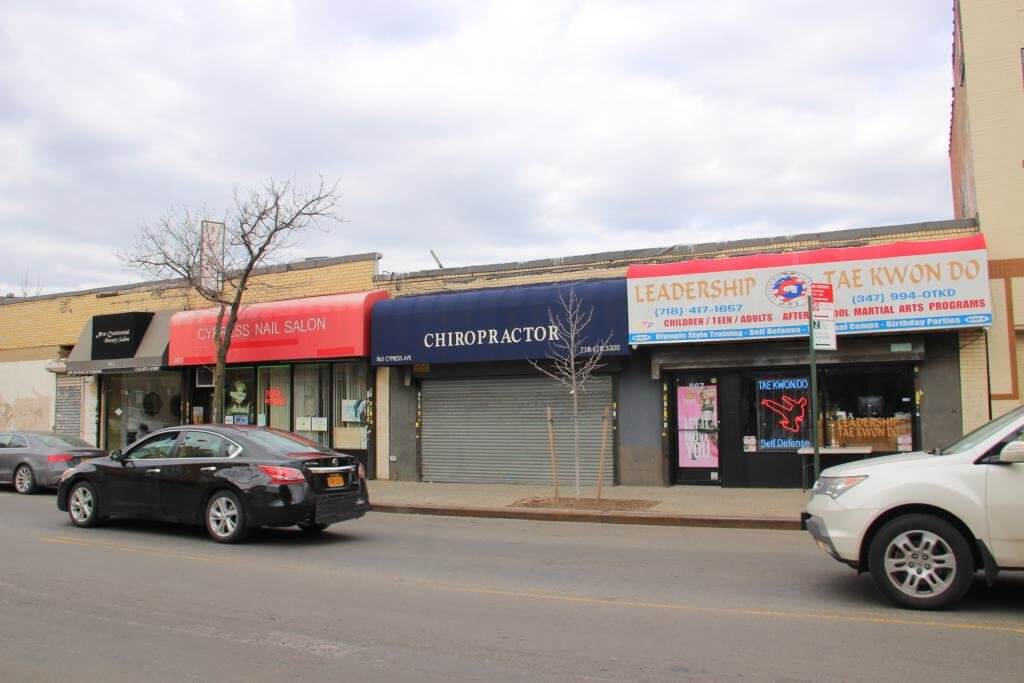
Reprinted and updated from the Sept. 15 and 22, 1983 Ridgewood Times.
* * *
If you have any remembrances or old photographs of “Our Neighborhood: The Way It Was” that you would like to share with our readers, please write to the Old Timer, c/o Ridgewood Times, 38-15 Bell Blvd., Bayside, NY 11361, or send an email to editorial@ridgewoodtimes.com. Any print photographs mailed to us will be carefully returned to you upon request.

